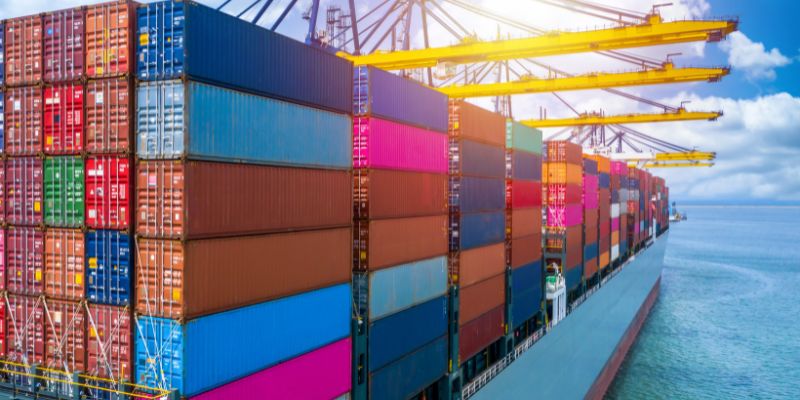What Does Delivery Duty Paid (DDP) Mean for Importers, and Why is it Used?
May 20, 2024 By Susan Kelly
Whether you are an exporter or importer, understanding the concept of a Delivery Duty Paid agreement is essential to exporting or importing goods internationally. Delivery Duty Paid shipping is the type of shipping in which all the responsibilities, risks, and fees are taken. DDP is very beneficial for importers since they have to take less risk and liability on their end. To give better insights on what DDP means for importers and why it is used.
What is Delivery Duty Paid (DDP)?
Delivery Duty Paid (DDP) is a shipping agreement between the importer and the exporter in which the seller or the exporter has to bear all the shipping responsibilities. It means the seller is responsible for bearing risks, insurance, responsibilities, and fees on the transporting goods, until the shipment is delivered to the buyer.
In the DDP agreement, the seller also has to pay any charges, including shipping costs, customs duties, delivery charges, or any other expenses that are involved in the shipping process. Hence the Delivery Duty Paid agreement protects the buyer and increases the responsibilities on the seller's end substantially.

What are the Seller's Responsibilities in the DDP Agreement?
According to the DDP agreement, almost all the shipping responsibilities are supposed to be fulfilled by the seller which includes the following liabilities.
- The seller is responsible for arranging the transportation via any type of carrier. Moreover, the seller has to pay for any costs of the carrier, including the customs clearance in the importer's country.
- The seller has to obtain approval from the buyer's country to send the goods to their destination port.
- The seller has to acquire the license for importing the goods into the country.
- The seller has to provide the goods along with the complete documentation, including the sales contract.
- The seller is responsible for export packaging that compiles with the courier's standards to safely ship the goods.
- The seller has to arrange for the export clearance at their destination from the authorities.
- The seller has to fulfill all the import, export, and shipping requirements.
- The seller has to pay for all the transportation fees, which also include the final delivery to the agreed-upon destination on the agreement.
- The seller has to arrange the proof of delivery, which should state the proof for providing goods, sales contract, and other necessary documents required for the goods.
- The seller has to pay any inspection costs and has to inform the buyer once the goods reach the agreed-upon destination port.
Despite all the responsibilities, the seller is not responsible for unloading the goods and that liability remains at the buyer's end. According to the DDP agreement, if the goods are lost or damaged during the transition process, then the seller is responsible for the costs of these liabilities.
What Does DDP Mean for Importers?
Delivered Duty Paid is usually applied when the supply costs are comparatively stable and predictable. In this agreement, the seller has to take most of the risk, which is why it is mostly used by advanced suppliers. However, some financial experts believe that DDP is not a suitable option for importers in the United States.
For the US buyers, the seller and the courier company are responsible for handling the transportation of goods. In such a case, the buyer does not have much information on the supply chain. Moreover, the seller could increase their prices to cover the costs of shipping, taxes, and other liabilities. Hence, the freight bills are increased substantially.
If the Delivered Duty Paid agreement is not handled properly, the goods inspection could suffer delays. Delays in shipping can also occur if the seller is using a cheap courier service with unreliable transportation services. The idea is to save costs, which increases the risk on the importer's end.

Why is Delivered Duty Paid Used?
Even though the Delivered Duty Paid leaves more liabilities at the buyer's end, it is still used as the agreement to ship goods for the following reasons.
To Protect the Importer
Since the exporter or the seller is taking all the risks and liabilities to send the goods, the protection element is at the buyer's or importer's end. DDP is in the best interest of buyers as it ensures that customers receive exactly what they ordered. Moreover, the time frame and costs lodged with the DDP agreement are too difficult for scammers to bear.
Safe Delivery of International Trade
There are a lot of risks involved with international shipping, and to ensure the safe delivery of goods on the importer's end, DDP is a suitable option. Moreover, every country has its own laws and limitations. With the Delivered Duty Paid agreement, the seller has to perform their research to be aware of the laws and regulations of the country to which they are exporting goods.
To Hold Seller Responsible for International Fees
The Delivered Duty Paid contract holds the seller responsible for paying any fees that are related to the goods. This may include courier shipping fees, customs clearance, fees of inspection, or any miscellaneous charges. DDP brings a smoother purchasing experience by leaving all the hassle of shipping on the seller's end.
Saves Buyers from the Hassle
In other forms of agreements, the buyer has to share the responsibilities with the seller in order to receive the order safely. But that's not the case with the DDP agreement, as it puts all the responsibility on the seller's end, leaving the importer hassle and worry-free.
Conclusion
Delivered Duty Paid (DDP) is much more advantageous for the buyer or importer as it streamlines the whole purchasing process. However, the Delivered Duty Paid agreement may not be a favorable option for sellers or exporters, as they have to bear all the liabilities and expenditures. Still, this agreement is popularly applicable around the globe, and many companies are still applying for it. Hopefully, this article has given you detailed insights into what is Delivered Duty Paid (DDP) and what it means for importers.
-
 Know-how May 16, 2024
Know-how May 16, 2024Medical Savings Accounts (MSA) Explained: Meaning, Benefits, and Limitations
Explore the fundamentals of Medical Savings Accounts, their types, advantages, and how they compare to other healthcare savings options.
-
 Investment May 20, 2024
Investment May 20, 2024What is Debt Consolidation and is it a Good Idea?
Learn how to make informed decisions for your financial future by knowing what is debt consolidation and how it works
-
 Know-how May 16, 2024
Know-how May 16, 2024How Does the ACA Health Insurance Marketplace Work? An In-Depth Look?
Explore the ACA Marketplace's role in transforming access to affordable health insurance, including plan types, subsidies, and enrollment tips.
-
 Know-how May 17, 2024
Know-how May 17, 2024Why Amica Home Insurance Stands Out: An In-Depth Analysis
Explore why Amica is a top choice for homeowners insurance through its exceptional service, coverage, and customer satisfaction in this detailed review.
